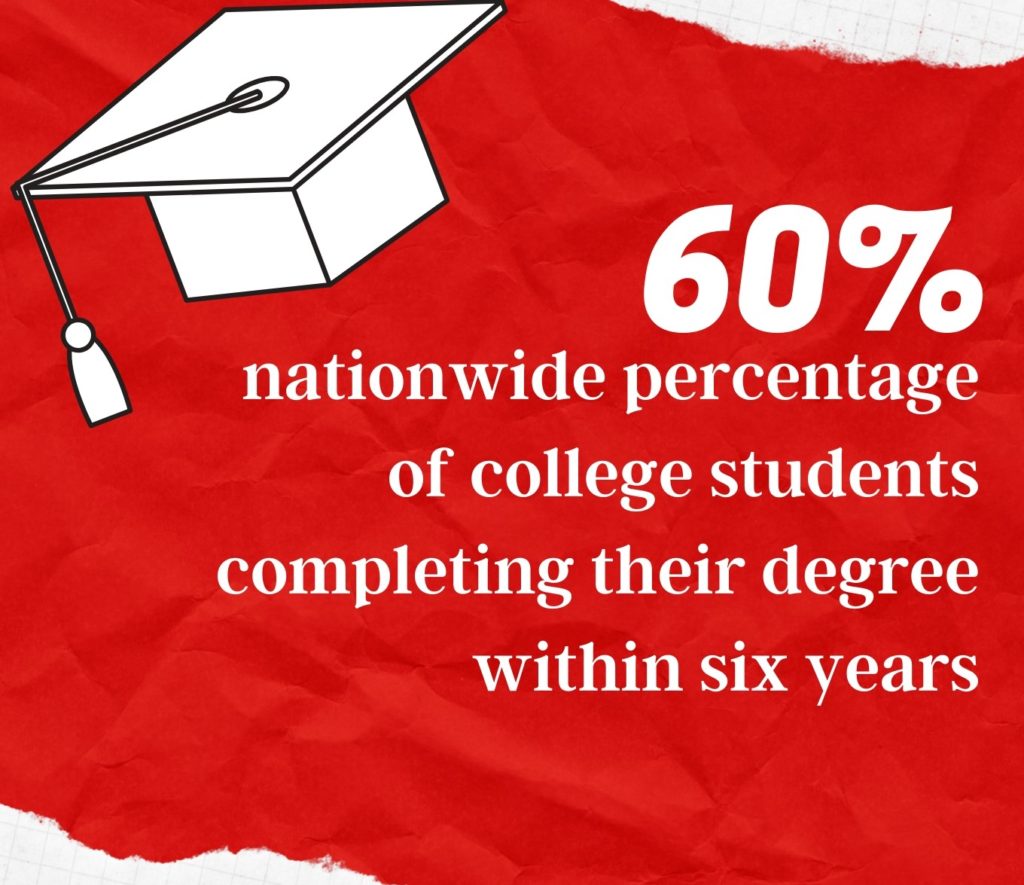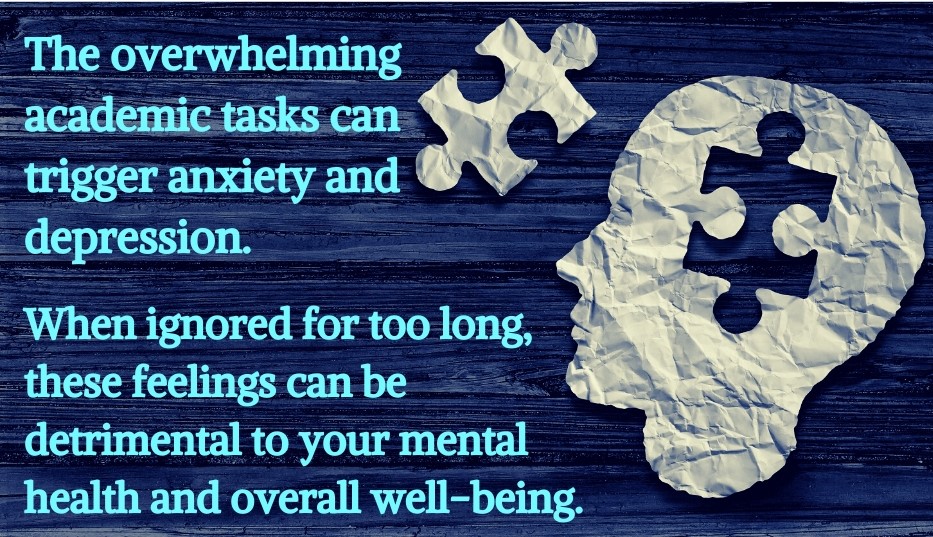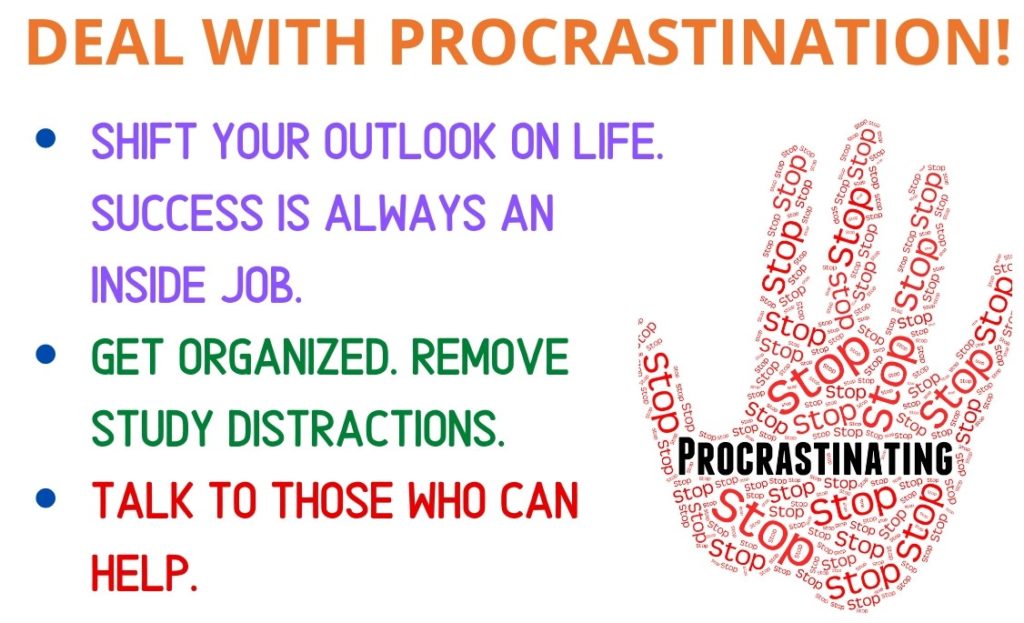
College is never easy! For a college student who struggles to strike a school-life balance, there seems to be not enough time to do everything. The overwhelming academic tasks, coupled with personal challenges, can trigger feelings of anxiety and depression that, when ignored for too long, can be detrimental to your mental health and overall well-being.
Students need a game plan that enables them to overcome a ton of challenges ranging from rigorous coursework, a truckload of school work, and looming deadlines.
Ah, the dreaded deadlines.
Meeting deadlines takes tremendous effort and dedication. Once you accomplish one task, another comes up, barely giving you enough room to breathe. The pressure can be too much, leaving you anxious and panicking. You risk losing your concentration and flanking your exams and find yourself struggling to find the motivation to carry on.
While administrators try to improve the situation through various mentoring programs, time management problems thwart every college student’s efforts to beat deadlines. Late submissions result in penalties and risk low grades.
Unsurprisingly, undergraduate students are earning their bachelor’s degrees beyond the expected number of years completion. The nationwide percentage for college students who manage to complete their degrees within six years sits at 60%.
Navigate the sections in this article using our page jumps:
Are You a Deadliner?
Beating the Deadline
* Organize your coursework and requirements.
* Master study methods.
* Manage your time wisely.
* Make plans according to your priorities.
* Break your tasks down to smaller and manageable segments.
* Deal with procrastination realistically
* Work on the task right away.
* Set simple and achievable goals.
* Incentivize yourself.

Are You a Deadliner?
Do you put your assignments on the back burner until the time’s up? Have you crammed for an exam and completed a 10-page paper in three hours? A deadliner is what you are!

As an urban slang for those who procrastinate, deadliners often wait until the last minute before working on or completing a task or project. Students often procrastinate—and fail to meet deadlines as a result—for a variety of reasons:
- You have too much work on your hands. You keep a full-time academic load at a university and supplement your educational costs with a job on the side.
- You lack focus that you can’t keep track of the time.
- You are a perfectionist who never gets satisfied with the outcome of your work. You write and review the same paper over and over again.
- The stacks of books and lecture materials you need to read, the assignments you need to complete, and the numerous exams you need to study for overwhelm you.
- You have low self-esteem and aren’t confident about being able to complete the task.
- You exhibit a rebellious trait and consider deadlines as a method of control. You want to defy it.

Beating the Deadline
Timing is everything, they say. This adage rings true for college students who need to send in requirements on time and get good grades in return.
How you respond to a deadline impacts your academic standing. The following tips can help you meet and beat deadlines more easily:

Organize your coursework and requirements.

As a college student, you need to work on and complete what is asked of you; how you do that is up to you!
Do you have assignments, projects, and papers due within the week? Tracking all of them using mobile apps can help you plan and organize your next steps. Get help from digital tools and apps that help you accomplish them all.
Listing down your academic tasks the traditional way won’t hurt either. Categorize them by subject, due date, or complexity. Write down your requirements in your daily planner for easy access.
Doing these allows you to monitor your progress and deliver your outputs promptly.

Master study methods.

To beat your deadlines, you need learning styles that work for you and can be easily integrated into your everyday habits:
- Spaced-out study sessions. This method lets you focus on a topic for a short period on different days. It allows you to absorb, digest, and retain more information without overworking your brain. You can create flashcards to help you remember important details.
- Self-quiz. Use flashcards to test your knowledge. Formulate test questions every time you learn a new concept. Answer each item at the end of your spaced-out study sessions.
- Paraphrasing and reflecting. Merely reading your materials don’t often help with retention. Try to find out how a piece of information, such as a theory, applies to your personal experience. Doing this enables you to understand the idea better and remember it too.

Manage your time wisely.

Arguably the most challenging strategy is time management. Indeed, you can only do so much.
- Stick to your routine and schedule.
- Set a time to complete each task.
- Limit the use of gadgets and social media.
Commit to time management strategies that work for you, but don’t take rest and sleep for granted. Recuperate and recharge if you have to, so you are ready to take on your next set of to-dos!


Make plans according to your priorities.
In dealing with mounting school work, you need to master the art of prioritizing.
Sort out the most important and urgent tasks and those that can wait. Create a task list, color-code them, and identify the items you need to complete first.

Break your tasks down to smaller and manageable segments.
A single project can be so complicated and time-consuming you pour your time and energy into it and accomplish nothing in the end! Breaking these types of tasks down into bite-sized to-dos can make a big difference.
A challenging research paper is the perfect example of a job with a few simpler tasks rolled into one. You need to do in-depth research, write your findings, review and recheck the information, and finalize the paper. None of these things can be done all at once; you must take on each of the little tasks to complete the work.

Deal with procrastination realistically.
College students try to escape the procrastination trap, and it is easier said than done.

You need to understand procrastination to address it! If you’re a procrastinator, here are the questions to ask:
- Do you avoid emotional reactions to overwhelming and stress-inducing situations?
- Are you likely to undermine the importance of a task?
- Do you usually fail to see the urgency of a project?
- Do you have trouble concentrating?
- Do you suffer from a lack of motivation and self-esteem?
It takes work to overcome procrastination, and you need to make little yet positive steps for a lasting change. Shifting your outlook, getting organized, removing distractions, and talking to those who can help are some of the ways to combat this character flaw.

Work on the task right away.
Don’t think you have the rest of the week to complete a task because the truth is, you don’t! Before you know it, you’re up to your neck in work! Putting off work for a later date can also lead to loss of motivation.

Set simple and achievable goals.

Simple tasks are easy to complete. In the same manner, setting small attainable goals works wonders for a college student. Finishing a simple task promptly is definitely achievable—and making a habit out of it can help you zero in on your bigger academic goals.


Incentivize yourself.
Drawing inspiration from the elusive academic success doesn’t work for everyone. If you’re like many college students, you’d want immediate rewards. You can create incentives for yourself!
Whenever you complete a simple task, treat yourself to a 30-minute break to check your social media accounts. When you’ve finished a bigger to-do, take a trip to your favorite coffee shop. Watch a good movie for which you never had the time. We live for life’s little and big rewards, don’t we?

Deadlines are an inescapable dimension of college life.
Take small but definite steps to beat your deadline
and reach academic success!